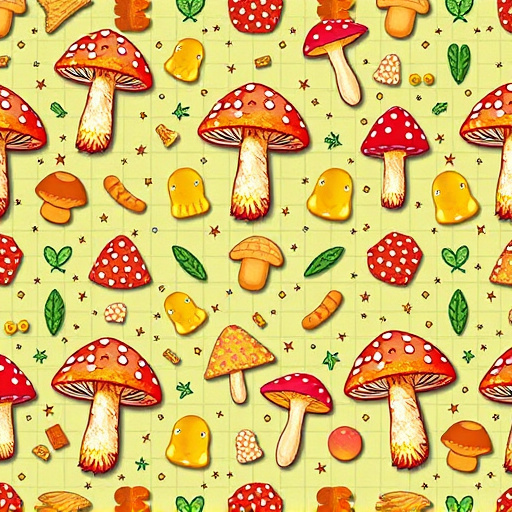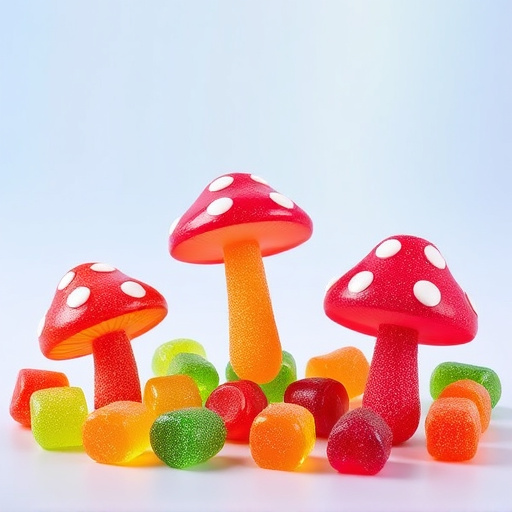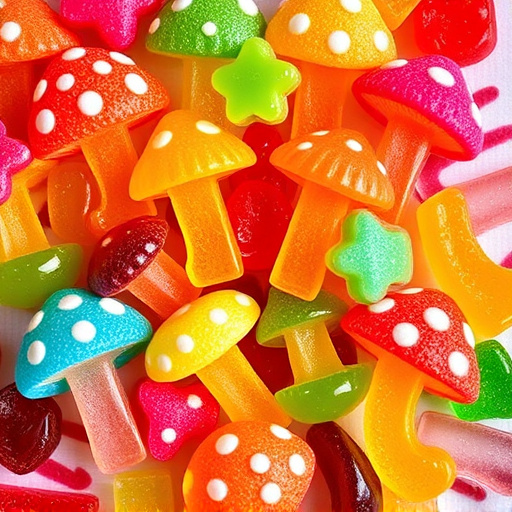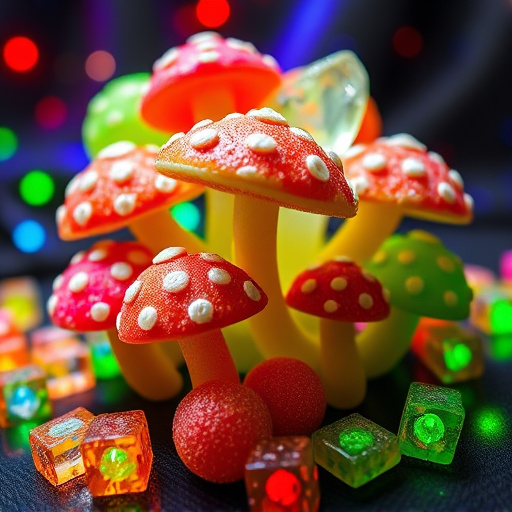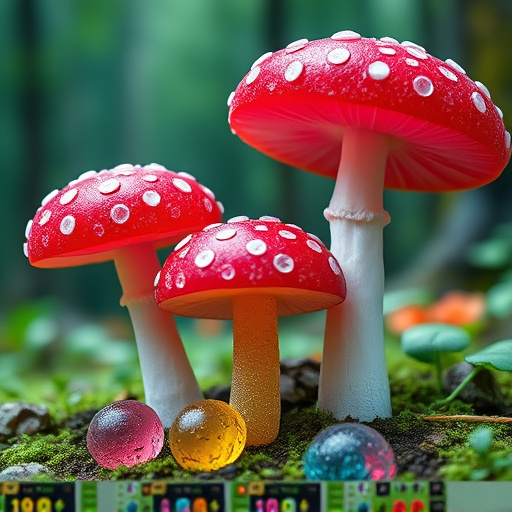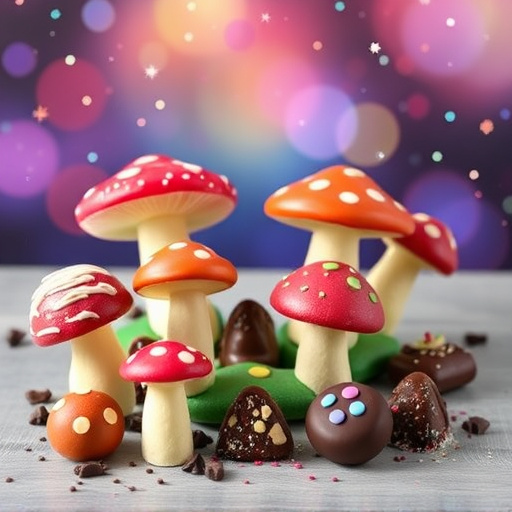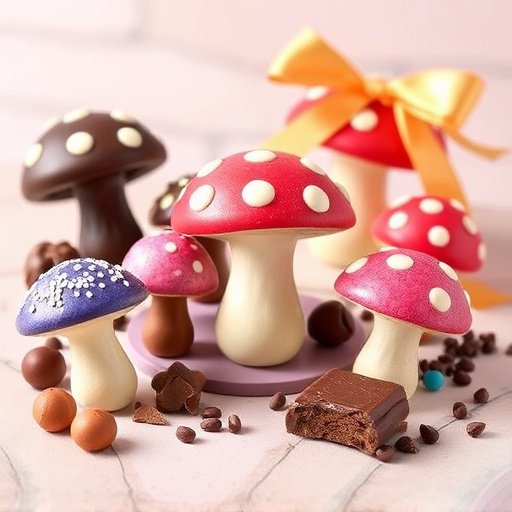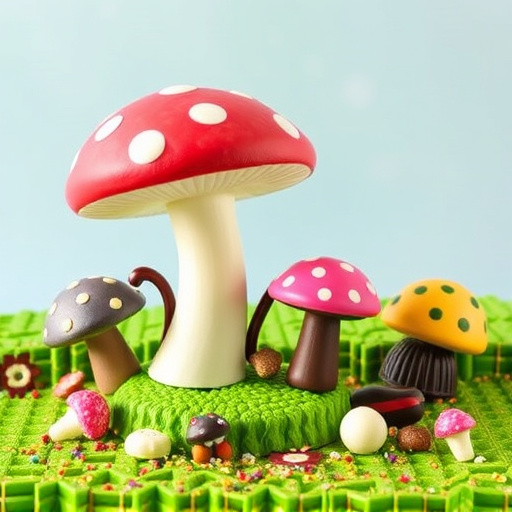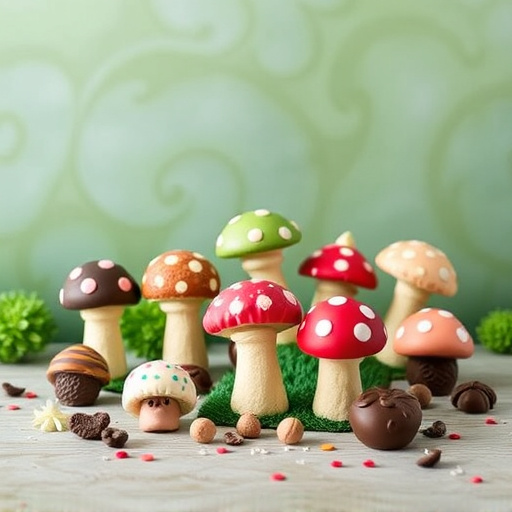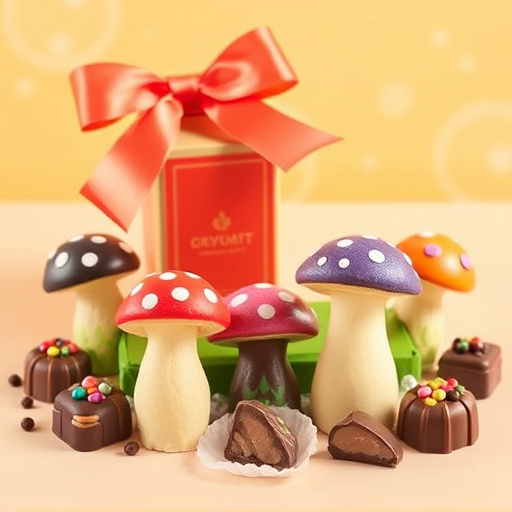The global legal status of magic mushroom chocolates is diverse, with regulations ranging from strict drug control laws to more relaxed approaches. In legal or decriminalized areas, these chocolates are subject to age restrictions and prescription controls due to their potent psilocybin properties. This regulation aims to balance consumer safety and accessibility for therapeutic purposes in treating conditions like depression, anxiety, and PTSD. The complex nature of this issue reflects the ongoing debate surrounding magic mushroom chocolates, emphasizing the need for understanding legal implications and individual tolerance levels before consumption.
“Unveiling the world of high-potency magic mushroom chocolates, this article offers a comprehensive guide. From understanding their composition to exploring the legal considerations, we delve into the current landscape of these unique treats. With a focus on the legal status of magic mushroom chocolates, we navigate the benefits and potential risks associated with their consumption. Get ready to uncover the surprises behind these delectable and potent treats.”
- Understanding High-Potency Magic Mushroom Chocolates: An Overview
- Legal Considerations: The Current Landscape of Magic Mushroom Chocolates
- Exploring the Benefits and Potential Risks of Consuming These Treats
Understanding High-Potency Magic Mushroom Chocolates: An Overview

High-potency magic mushroom chocolates are a unique fusion of culinary delight and psychedelic exploration, offering an alternative way to experience the effects of psilocybin mushrooms. These chocolates typically contain finely ground dried mushrooms infused into dark chocolate, creating a delectable treat with potent psychotropic properties. The legal status of magic mushroom chocolates varies globally; in some regions, they may be entirely illegal due to strict drug control laws, while other areas have embraced a more relaxed approach, allowing for limited sales and possession under specific conditions.
Understanding the legal landscape is crucial when considering these products. Many countries are navigating the potential benefits and risks, leading to evolving regulations. In places where magic mushroom chocolates are legalized or decriminalized, they often carry age restrictions and require prescription-like controls, similar to pharmaceuticals. This regulatory framework aims to ensure consumer safety while also providing access for those who may benefit from psilocybin-assisted therapy for conditions like depression, anxiety, and PTSD.
Legal Considerations: The Current Landscape of Magic Mushroom Chocolates
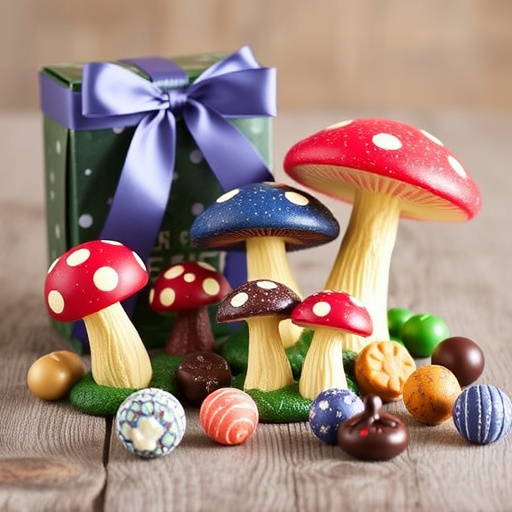
The legal considerations surrounding high-potency magic mushroom chocolates are complex and vary significantly across different jurisdictions. While some regions have embraced medicinal and therapeutic uses of psilocybin, often found in magic mushrooms, others maintain stringent restrictions on its use and distribution. The Legal Status of Magic Mushroom Chocolates is a delicate balance between public perception, scientific research, and cultural attitudes.
In recent years, there has been a growing trend towards decriminalization and legalization for medical purposes. This shift acknowledges the potential therapeutic benefits of psilocybin in treating mental health conditions like depression, anxiety, and PTSD. As a result, countries like Canada, certain U.S. states, and several European nations have legalized or decriminalized psilocybin under controlled circumstances. However, the sale and distribution of magic mushroom chocolates remain tightly regulated, with strict controls on dosages and age restrictions to ensure consumer safety.
Exploring the Benefits and Potential Risks of Consuming These Treats
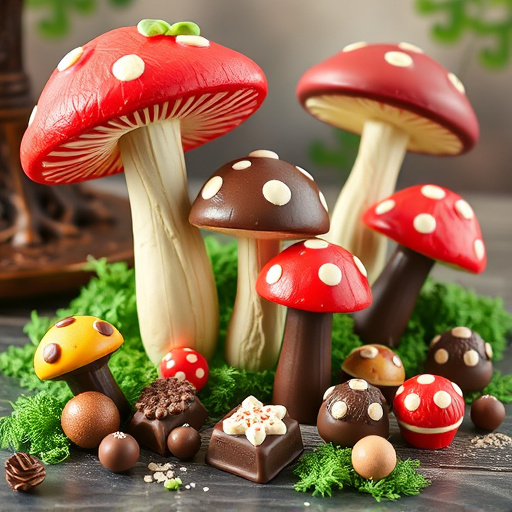
Exploring the world of high-potency magic mushroom chocolates involves a delicate balance between potential therapeutic benefits and notable risks. These treats, infused with psychotropic compounds found in mushrooms like Psilocybin, have garnered interest for their reported ability to aid in mental health treatment, including alleviating symptoms of depression and anxiety. Research into these compounds is ongoing, showing promising results for their therapeutic applications. However, the legal status of magic mushroom chocolates varies widely, with some regions considering them a controlled substance due to their psychoactive properties.
Navigating this landscape requires careful consideration. While some consumers seek out these treats for their perceived health benefits, it’s crucial to remember that psilocybin and other compounds can induce intense psychological experiences, leading to potential adverse reactions in susceptible individuals. The risk of paranoia, anxiety, or disorientation is real, even among those who report positive effects. Thus, understanding both the legal implications and personal tolerance levels is essential before indulging in high-potency magic mushroom chocolates.
The rising popularity of high-potency magic mushroom chocolates highlights a complex intersection between consumer desire, innovative product development, and the evolving legal landscape. As discussions around the therapeutic potential of mushrooms gain momentum, understanding the current legal status of magic mushroom chocolates—a testament to the changing perceptions surrounding psychedelic substances—is crucial. Navigating these uncharted territories requires an informed approach, balancing exploration with caution, as we delve into the benefits and risks associated with this unique treat. In light of the above, it’s essential to stay updated on regulatory changes regarding the legal status of magic mushroom chocolates, ensuring both personal safety and responsible consumption.
